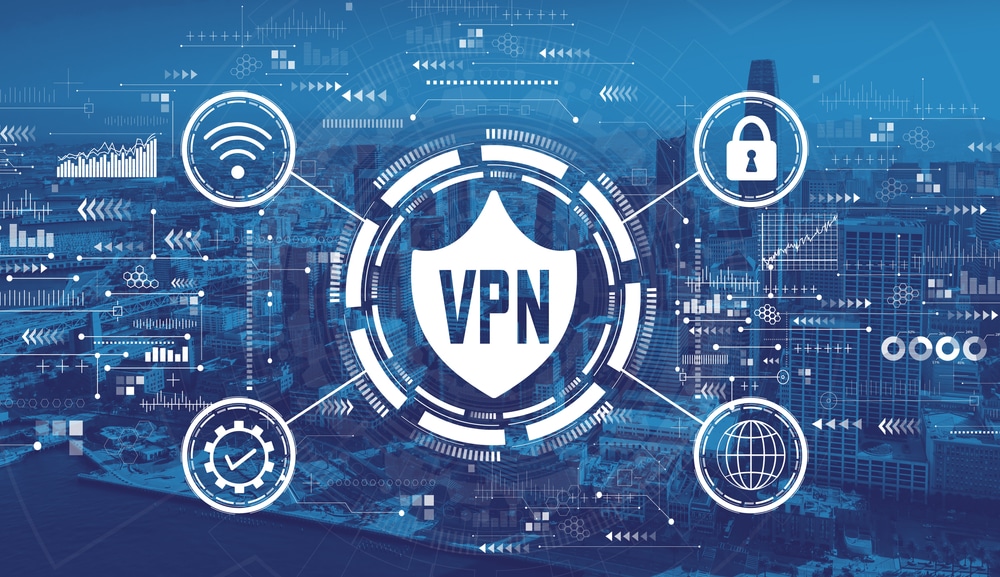In today’s digital age, online privacy and security have become increasingly important. With the rise of cyber threats and government surveillance, many people turn to Virtual Private Networks (VPNs) to protect their online activities.
However, installing a VPN on a school computer can be challenging, as many schools have strict policies and security measures to prevent unauthorized access to their networks.
In this article, we will provide easy steps to install a VPN on a school computer in 2023, allowing you to access the internet securely and privately while at school.
Whether you’re looking to bypass school website restrictions, protect your personal information, or browse the web with peace of mind, this article will guide you through installing a VPN on a school computer.

Table of contents
- What is a VPN?
- How do I install a VPN on my school computer- Step-by-step guide
- What are the benefits of using a VPN on a school computer?
- Can I use a free VPN on my school computer?
- Will installing a VPN on my school computer slow down my internet speed?
- How do I know if my VPN is working on my school computer?
- Is it legal to use a VPN on a school computer?
- What are the best VPNs to use on a school computer?
- Can a VPN bypass school website restrictions?
- Will a VPN protect my personal information on a school computer?
- Frequently Asked Questions
- Conclusion
- References
- Recommendations
What is a VPN?
A VPN stands for Virtual Private Network. It is a software application that encrypts and secures your internet connection by routing it through a remote server. This provides privacy and anonymity by masking your online identity and activity from your internet service provider (ISP).
It also provides any other third parties that may be monitoring your connection. A VPN can also allow you to access websites or content that may be blocked or restricted in your location.
You should read: Algoma University: Rankings 2023, Fees, Courses, Admission, Scholarships.
How do I install a VPN on my school computer- Step-by-step guide
Installing a VPN on a school computer may depend on various factors, such as the operating system, school policies, and whether you have administrative access. However, here is a general step-by-step guide on how to install a VPN on a school computer:
Step 1- Choose a VPN provider
Start by researching and selecting a VPN provider that meets your needs. Some popular VPN providers are NordVPN, ExpressVPN, and CyberGhost. You can scroll down to see a list of VPN providers and why each stands out.
Step 2: Purchase a subscription.
Once you’ve selected a VPN provider, you must purchase a subscription to use the service. Most VPN providers offer various pricing plans, so choose the one that suits your budget and needs.
Step 3- Download and install the VPN software
After purchasing the subscription, download the VPN software from the provider’s website. Install the software by following the instructions provided.
You should read: Algoma University: Rankings 2023, Fees, Courses, Admission, Scholarships.
Step 4- Launch the VPN software
Once the software is installed, launch it and log in using your VPN account credentials.
Step 5- Connect to a VPN server
After logging in, select a VPN server location from the provider’s list of available servers. This will depend on the site of the content you wish to access or the server’s proximity to your location.
Step 6- Verify your connection
After connecting to the VPN server, verify your connection by visiting a website that displays your IP address. If the website shows the IP address of the VPN server instead of your actual IP address, then your VPN is working.
See this related article: What Are The Best Places To Study At Carnegie Mellon?
What are the benefits of using a VPN on a school computer?
Using a VPN on a school computer has several benefits, including:
Enhanced privacy and security
A VPN encrypts your internet connection and data, making it difficult for hackers and other third parties to intercept or monitor your online activity. This can help protect your personal information and online privacy.
Access to restricted content
Many schools restrict access to certain websites or online services, such as social media or streaming services. With a VPN, you can bypass these restrictions and access any website or online service you need.
Check out this article: now.gg Unblocked At School | How To Use now.gg On School Chromebook
Protection from cyber threats
A VPN can help protect your school computer from malware, viruses, and other cyber threats on the internet.
Secure remote access
If you need to access your school’s network or files remotely, a VPN can provide a secure and encrypted connection between your computer and the school’s network.
Anonymity and Freedom of Speech
A VPN can help you stay anonymous online, especially if you wish to express your opinions or ideas without fear of retribution or censorship.
We think you should read: PTE Exam Dates in Chandigarh 2023
Can I use a free VPN on my school computer?
While many free VPN services are available, using them on your school computer is generally not recommended. Free VPNs often come with limitations and risks that may not be worth it, especially if you’re using them to protect sensitive data or access restricted content.
Free VPNs often have data caps, slow speeds, and limited server locations, affecting the quality of your online experience. Additionally, some free VPNs may log your internet activity or sell your data to third-party advertisers, which can compromise your online privacy.
Using a paid VPN service that provides more robust security features and better performance is generally recommended. If you’re looking for a free VPN, research and choose a reputable provider that doesn’t compromise your privacy or security.
Check out this article: Niagara College – Toronto: Rankings, Fees, Courses, Admission 2023, Scholarships.
Will installing a VPN on my school computer slow down my internet speed?
In general, using a VPN can somewhat slow down your internet speed due to the additional encryption and rerouting of your internet traffic. However, the speed reduction depends on several factors, such as the VPN server location, your internet connection speed, and the quality of the VPN service.
When you connect to a VPN server far from your physical location, your internet speed can be significantly impacted. On the other hand, choosing a server location closer to your physical location can reduce the impact on your internet speed.
Additionally, using a high-quality VPN service with fast servers and advanced features can minimize the impact on your internet speed. Some VPN services also offer split-tunneling, which allows you to route only the necessary traffic through the VPN while leaving other traffic directly on the internet, helping to reduce the speed impact.
While using a VPN may reduce your internet speed to some extent, it’s usually not significant enough to affect your online activities.
See this related article: MBA in USA for Indian Students in 2023 | Universities, Courses, Cost
How do I know if my VPN is working on my school computer?
To check if your VPN is working on your school computer, you can follow these steps:
Connect to the VPN
Launch the VPN client software on your school computer and connect to a VPN server. Make sure that the connection is established successfully.
Check your IP address.
Once connected to the VPN, check your IP address by visiting a website that displays your IP address. You can use websites like “whatismyip.com” or “iplocation.net” to check your IP address.
Verify your location
After checking your IP address, verify your location on a map to ensure it matches the VPN server location. If the location matches the VPN server location, your VPN works correctly.
Test the connection
Finally, test your VPN connection by accessing a blocked website or content unavailable in your school network. If you can access the content without issues, your VPN works correctly.
You should read: Vancouver Island University: Rankings, Courses, Admission 2023, Requirements, and Scholarships.
Is it legal to use a VPN on a school computer?
Using a VPN on a school computer may be allowed or prohibited, depending on the school’s policies and regulations. Some schools may have policies prohibiting VPNs on their computers or networks, while others may allow their use under specific conditions.
Regarding legality, VPN use is generally legal in most countries, including the United States. However, it is essential to note that using a VPN to bypass school policies, access restricted content, or engage in illegal activities is not legal and may result in disciplinary action by the school or legal consequences.
Therefore, before using a VPN on a school computer, it is essential to check the school’s policies and regulations and use the VPN only for legal and legitimate purposes.
Check out this article: What are Academic Transcripts and How to Get It in 2023?
What are the best VPNs to use on a school computer?
Choosing the best VPN for use on a school computer can depend on various factors, such as the specific needs and preferences of the user, the features offered by the VPN, and the school’s policies regarding VPN use. Here are some of the best VPNs that can be used on a school computer, along with their reasons why:
NordVPN
NordVPN is a popular VPN service that offers strong encryption, fast connection speeds, and an extensive network of servers in different countries. It also has a strict no-logs policy, meaning it does not keep logs of user activity or connection data.
ExpressVPN
ExpressVPN is another popular VPN service that offers fast and reliable connections, strong encryption, and an extensive network of servers in different countries. It also has a user-friendly interface and a strict no-logs policy.
CyberGhost
CyberGhost is a VPN service that offers strong encryption, fast connection speeds, and an extensive network of servers in different countries. It also has a user-friendly interface and offers specific servers optimized for other use cases, such as streaming or torrenting.
See this related article: Master in Management Courses Abroad: Eligibility, Colleges, Fees | 2023
Private Internet Access (PIA)
PIA is a VPN service that offers strong encryption, fast connection speeds, and an extensive network of servers in different countries. It also has a strict no-logs policy and offers ad-blocking and malware protection features.
Surfshark
Surfshark is a newer VPN service that offers strong encryption, fast connection speeds, and an extensive network of servers in different countries. It also has a strict no-logs policy, offers specific servers optimized for other use cases, and allows unlimited simultaneous connections.
It is important to note that using any VPN on a school computer should be done by the school’s policies and regulations and for legitimate purposes only.
You should read: Trine University 2023: Rankings, Fees, Courses, Admission, Scholarships.
Can a VPN bypass school website restrictions?
Using a VPN may allow you to bypass website restrictions on a school computer. When you connect to a VPN, your internet traffic is encrypted and routed through a remote server. This allows you to access websites your school’s network or firewall may block.
However, it is essential to note that bypassing school website restrictions using a VPN may be against school policies and could result in disciplinary action. Additionally, some schools may actively monitor VPN traffic and block VPN connections. Therefore, it is essential to understand your school’s policies and regulations before using a VPN to bypass website restrictions.
We think you should read: What is OFC Appointment in US Visa – Check Fees & Documents Required in 2023
Will a VPN protect my personal information on a school computer?
Yes, a VPN can protect your personal information on a school computer by encrypting your internet traffic and hiding your online activity from potential eavesdroppers, including your school’s network administrators.
When you use a VPN on a school computer, your internet traffic is routed through a remote server, which creates a secure and private connection between your device and the internet. This can help prevent hackers, snoopers, and other malicious actors from accessing your personal information, such as browsing history, passwords, and login credentials.
However, it is essential to note that using a VPN does not guarantee the complete protection of your personal information. Practicing safe browsing habits and avoiding sharing sensitive information over unsecured networks is still essential. Additionally, some schools may have policies or regulations prohibiting VPN use, so it is necessary to understand your school’s policies before using a VPN on a computer.
Check out this article: How to Convert 10 Points CGPA to 4 Points GPA in the USA.
Frequently Asked Questions
A Virtual Private Network (VPN) is software that encrypts your internet connection, allowing you to browse the web securely and privately. It can also help you bypass website restrictions and access content that may be blocked in your location.
Using a VPN on a school computer is generally legal, but checking your school’s policies and regulations is essential to ensure you’re not violating any rules. Some schools may prohibit using VPNs, so checking first is necessary.
There are both free and paid VPN services available. While free VPNs can be tempting, they often come with limitations and may provide a different level of security than paid services. Paid VPNs typically offer more features and better security.
In most cases, you should be able to install a VPN on any school computer you have administrative access to. However, some schools may have security measures in place that prevent the installation of third-party software. If you need more clarification, it’s best to check with your school’s IT department.
After installing a VPN on your school computer, you can check whether it works by visiting a website displaying your IP address. If the website shows the IP address of the VPN server, then your VPN is working correctly.
Conclusion
The internet is a powerful tool for learning, communication, and entertainment, but it can also be risky without proper protection. Installing a VPN on your school computer allows you to browse the web safely and privately without worrying about cyber threats or government surveillance.
The steps outlined in this article are easy to follow and can be completed by anyone, regardless of their technical expertise. By installing a VPN on your school computer, you are taking a proactive step toward protecting your online privacy and security. So don’t wait any longer. Follow the easy steps in this article and start enjoying the benefits of a VPN today!
Before you go, check out this related article: Top 10 Toughest Exams in the World 2023
References
- comparitech.com– Best VPN for school
- youronlinechoices.com.au– how to install a VPN on a school computer
- valleyai.net– how to install a VPN on a school computer
- privacyaffairs.com– how to install a VPN on a school computer
Recommendations
- Niagara College – Toronto: Rankings, Fees, Courses, Admission 2023, ScholarshipsMBA in USA for Indian Students in 2023 | Universities, Courses, Cost
- Vancouver Island University: Rankings, Courses, Admission 2023, Requirements and Scholarships
- What are Academic Transcripts, and How to Get Them in 2023?
- Trine University 2023: Rankings, Fees, Courses, Admission, Scholarships
- Master in Management Courses Abroad: Eligibility, Colleges, Fees | 2023
- What is OFC Appointment in US Visa – Check Fees & Documents Required in 2023



